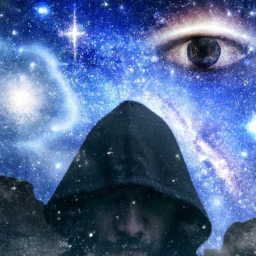**Dreams have always intrigued me for their mysterious messages. While I consider myself straight, I’ve pondered why I occasionally dream of same-sex interactions. Initially confused and anxious, I’ve realized that these dreams are simply a common aspect of dreaming. If you’re curious too, keep reading to uncover the secrets of dream interpretation!**
There are many factors that can contribute to having gay dreams, and it is important to understand them in order to feel more comfortable and confident in one’s own skin. In this article, I will explore the various types of sexual dreams, the common causes of gay dreams, the role of gender and sexual identity, and how to deal with confusion and anxiety.
I will also discuss how to overcome internalized homophobia, the importance of boundaries and consent, and when to seek medical and psychological help. Ultimately, I hope to help readers embrace their authentic selves and feel empowered to explore their sexual desires and identities, both in their dreams and in their waking lives.
Key Takeaways
- Sexual dreams, including gay dreams, are a natural part of sleep and can provide a safe space to explore subconscious thoughts and desires.
- Understanding and exploring one’s sexual identity is important for self-acceptance and living authentically, but may also bring up internalized homophobia and other challenges that need to be addressed in a healthy way.
- Boundaries and consent are crucial in navigating complex issues related to sexual identity and relationships, and it’s important to engage in appropriate sexual behavior that involves active consent, communication, respect for boundaries, safe experimentation, and mutual pleasure.
- Seeking support from trusted individuals and resources may be necessary in the journey of self-discovery and acceptance of one’s sexual identity and dreams.
Understanding the Nature of Dreams
You might be feeling confused and curious about why your mind is creating these vivid and sometimes unsettling dreams, but understanding the nature of dreams can help provide insight into their meaning and significance.
Dreams are a natural part of the sleep cycle and are believed to help process and consolidate memories, emotions, and experiences. They can be influenced by a variety of factors, including your daily experiences, current emotional state, and even your diet.
It’s important to remember that dreams are not always literal and can be interpreted in different ways. While some dreams may be straightforward and reflect your conscious desires or fears, others may be more symbolic and require deeper analysis.
This is especially true for sexual dreams, which can have a wide range of interpretations depending on the individual’s personal experiences and feelings.
The Various Types of Sexual Dreams
Sometimes, your mind can conjure up vivid, erotic scenarios that leave you feeling both exhilarated and confused. For instance, imagine waking up from a dream where you’re having sex with a celebrity you’ve never met before – you might feel embarrassed or guilty, but also secretly aroused.
Sexual dreams are incredibly common and can take many different forms, from erotic encounters with strangers to romantic trysts with your significant other. These dreams are often a reflection of your subconscious desires and can be influenced by a variety of factors, such as your personal experiences, current emotions, and even your physical state.
When it comes to sexual dreams, there are a few different types that you might experience. One common type is the fantasy dream, where your mind conjures up a completely unrealistic scenario that fulfills your deepest desires. Another type is the memory dream, where your brain replays a sexual encounter that you’ve had in the past. Finally, there are the anxiety dreams, where you might dream about something sexual that makes you feel uncomfortable or ashamed.
Understanding the different types of sexual dreams can help you better interpret their meaning and gain insight into your own psyche. From here, we’ll explore the common causes of gay dreams and their potential meanings.
Common Causes of Gay Dreams
I’ve often wondered why I have gay dreams, and after some research, I’ve discovered that there are several common causes.
One reason might be sexual curiosity and exploration, as my subconscious mind might be trying to explore different aspects of my sexuality.
Another possibility is that I have repressed sexual desires that are manifesting in my dreams.
Lastly, exposure to LGBTQ+ culture in my waking life could also be influencing my dreams.
Sexual Curiosity and Exploration
Exploring your sexuality through dreams is a natural and common experience, and it’s okay to have questions about your attractions and desires. Dreams provide a safe space for us to explore our subconscious thoughts and emotions, including our sexual desires.
Here are some reasons why you may be having gay dreams as a means of sexual curiosity and exploration:
-
You may be questioning your sexual identity. It’s common for people to question their sexual orientation at some point in their lives. Dreams can be a way of exploring these thoughts and feelings in a safe and private way.
-
You may be curious about same-sex experiences. Even if you identify as heterosexual, it’s natural to be curious about same-sex experiences. Dreams can provide a way to explore these curiosities without any real-life consequences.
-
You may be seeking pleasure and excitement. Sexual dreams can be a way to experience pleasure and excitement without any physical risks or consequences.
It’s important to remember that having gay dreams doesn’t necessarily mean that you’re gay or bisexual. These dreams can simply be a way to explore your sexuality and desires. However, if you do find that you have repressed sexual desires, it’s important to seek support and guidance to better understand and accept your sexual identity.
Repressed Sexual Desires
If you’re feeling like there’s more to your sexual desires than what you’re currently experiencing, it’s like having a garden that needs to be tended to in order to flourish. Just like a garden needs sunlight, water, and attention, your sexual desires may need support and acceptance to grow and thrive. One reason you may be having gay dreams is due to repressed sexual desires. It’s possible that you have been denying your attraction to the same sex, either due to societal pressure or personal beliefs, and your dreams are a way for your subconscious to explore those desires in a safe space.
To better understand this concept, consider the following table:
| Repressed Desires | Manifestation in Dreams |
|---|---|
| Hidden sexual desires towards the same sex | Dreams involving same-sex partners |
| Suppressed gender identity | Dreams featuring oneself as a different gender |
| Denied kinks or fetishes | Dreams involving those desires |
It’s important to note that having gay dreams does not necessarily mean that you are gay or bisexual. It simply means that your mind is exploring different aspects of your sexuality. In the next section, we will discuss how exposure to LGBTQ+ culture can also play a role in these dreams.
Exposure to LGBTQ+ Culture
By immersing myself in LGBTQ+ culture, I’ve been exposed to a wider range of sexual and gender identities. This exposure has allowed me to better understand and appreciate the diversity of human sexuality.
As a result, my dreams have become more inclusive, featuring representations of same-sex attraction and non-binary identities. It’s important to note that exposure to LGBTQ+ culture doesn’t necessarily mean that a person will have gay dreams.
Dreams are complex and influenced by a variety of factors, including personal experiences, emotions, and subconscious desires. In the next section, we’ll explore the role of gender and sexual identity in dreams and how they can impact dream content.
The Role of Gender and Sexual Identity
Gender and sexual identity play a significant role in shaping the content of our dreams, and this includes our gay dreams. As someone who identifies as gay or bisexual, it’s not uncommon to have dreams that reflect our sexual orientation. Our subconscious mind may be processing our feelings and desires, and this can manifest in our dreams.
Here are four ways that gender and sexual identity can influence the content of our dreams:
-
Our dreams may reflect our current state of acceptance or denial about our sexuality.
-
Our dreams may be influenced by the gender or sexual identity of the people we find attractive or are interested in.
-
Our dreams may reveal internal conflicts or anxieties about our sexuality.
-
Our dreams may be a way for us to explore and express our sexual desires in a safe and private space.
Dealing with confusion and anxiety around our sexual orientation can be challenging, and the presence of gay dreams can add to these feelings. However, it’s important to remember that dreams don’t necessarily reflect reality, and seeking support from trusted friends or professionals can be helpful in navigating these emotions.
Dealing with Confusion and Anxiety
Dealing with confusion and anxiety around our sexual orientation can be tough, but it’s important to remember that seeking support from trusted friends and professionals can help ease these emotions.
It’s natural to feel anxious or uncertain about our sexual identity, especially if we’ve had same-sex dreams. However, it’s important to recognize that having gay dreams doesn’t necessarily mean we’re gay or that we have a certain sexual orientation. Dreams can be influenced by a variety of factors, including our subconscious thoughts, feelings, and experiences.
Instead of immediately labeling ourselves based on our dreams, it’s important to take time to explore our sexual identity and understand our own feelings and desires. This can involve reflecting on our past experiences and attractions, talking to trusted friends or professionals, and even experimenting with different relationships or sexual experiences.
By approaching our sexual identity with an open mind and seeking support when we need it, we can better understand ourselves and find peace with our own desires.
Exploring Your Sexual Identity
As I embark on the journey of exploring my sexual identity, it’s like stepping into a vast and uncharted ocean, full of possibilities and unknown depths to be discovered. It can be exciting, but also overwhelming and confusing. One way to make sense of it all is to start by understanding the different components of sexuality, such as attraction, behavior, and identity.
To help clarify these components, I find it helpful to use a table that breaks down each aspect and allows me to reflect on my own experiences and feelings. Here is an example:
| Component | Definition | My Reflection |
|---|---|---|
| Attraction | Who I am attracted to | I feel attracted to both men and women |
| Behavior | What I do sexually | I have only had romantic relationships with the opposite sex |
| Identity | How I identify | I am still exploring and unsure |
By examining each component separately, I can start to gain a better understanding of my own sexuality. This process takes time and patience, but it can also be empowering and liberating. However, it’s important to acknowledge that this journey can also bring up internalized homophobia and other challenges, which I will explore in the next section.
Overcoming internalized homophobia is not an easy feat, but it is an important and necessary step towards self-acceptance and living authentically.
Overcoming Internalized Homophobia
I’ve spent a lot of time exploring my sexual identity, trying to understand who I am and what I want. But even as I’ve come to accept that I’m attracted to people of the same gender, I’ve struggled with internalized homophobia.
It’s not easy to overcome years of societal conditioning and negative messages about LGBTQ+ people, but it’s essential if I want to live a healthy and authentic life. Internalized homophobia can manifest in many ways, from feeling shame or disgust about same-sex attraction to avoiding LGBTQ+ spaces and relationships.
For me, it’s often shown up in my dreams. I’ve had vivid, sexually explicit dreams about men, only to wake up feeling ashamed and confused. But as I’ve learned more about internalized homophobia, I’ve come to understand that these dreams are a natural part of the process of accepting myself. It’s okay to feel uncomfortable or conflicted at times, as long as I keep working towards self-acceptance and self-love.
As I continue on this journey of self-discovery and acceptance, I’m learning more about the importance of boundaries and consent. It’s not enough to simply accept myself; I also need to respect my own boundaries and the boundaries of others.
In the next section, I’ll explore how to navigate these complex issues in a healthy and respectful way.
The Importance of Boundaries and Consent
Understanding the importance of boundaries and consent can help you navigate complex issues related to your sexual identity and relationships. It’s important to know what your boundaries are and communicate them clearly to your partner(s), whether it’s in a dream or in real life. It’s also crucial to respect other people’s boundaries and only engage in sexual activities with their full and enthusiastic consent.
To help you understand the concept of boundaries and consent better, here’s a table that outlines some examples of what is and isn’t okay in terms of sexual behavior:
| Appropriate Behavior | Inappropriate Behavior |
|---|---|
| Both parties actively consent | One party is coerced or pressured |
| Communication and respect for each other’s boundaries | Ignoring or crossing personal boundaries |
| Safe and consensual experimentation | Engaging in non-consensual or unsafe sexual activities |
| Mutual pleasure and enjoyment | Disregarding the other person’s feelings or pleasure |
By understanding the importance of boundaries and consent, you can have healthier and more fulfilling sexual experiences. Remember that it’s okay to say no and that you should only engage in sexual activities that align with your personal values and boundaries. If you’re struggling with these issues, seeking medical and psychological help may be a good option for you.
Seeking Medical and Psychological Help
I’ve come to realize that boundaries and consent are crucial not only in our waking lives but also in our dreams. However, I’ve been having a recurring dream that I’m not quite sure how to handle.
It’s a dream where I’m with someone of the same gender, and we’re engaging in sexual activity. I wake up feeling confused and ashamed. It’s not that I have anything against the LGBTQ+ community; it’s just that I’ve never considered myself as someone who might be attracted to the same gender.
As I’ve been struggling to understand these dreams, I’ve started to consider seeking medical and psychological help. Maybe there’s an underlying issue that I’m not aware of, or perhaps these dreams are just a product of my subconscious thoughts.
Whatever it may be, I want to get to the bottom of it so that I can understand myself better. With the help of professionals, I hope to come to terms with these dreams and learn how to embrace my authentic self.
Embracing Your Authentic Self
You can begin to fully embrace your authentic self by exploring your thoughts and feelings without judgment. It’s important to recognize that having gay dreams doesn’t necessarily mean that you’re gay, but it may hint at a part of yourself that you’ve been suppressing or denying.
It’s okay to question your sexuality and to take the time to understand yourself better. One way to start the process of embracing your authentic self is by journaling. Write down your thoughts and feelings about your dreams and see where they take you.
It may also be helpful to talk to someone you trust, such as a friend or therapist, about your feelings. Remember, being true to yourself is important in living a happy and fulfilling life.
Frequently Asked Questions
Can someone’s sexual orientation change based on their dreams?
I don’t believe sexual orientation can change based on dreams. Dreams are often a reflection of our subconscious thoughts and desires, but they do not determine our sexual orientation. It’s important to explore and understand our true selves through self-reflection and exploration.
Are gay dreams a sign of being gay or bisexual?
Gay dreams don’t necessarily indicate one’s sexual orientation. Dreams are often a reflection of our subconscious thoughts and desires, but they don’t always reflect our waking reality. It’s important to explore and acknowledge one’s true feelings and attractions in waking life.
Why do some people have more sexual dreams than others?
I’ve noticed that some people have more sexual dreams than others. For example, my friend Sarah has vivid sexual dreams almost every night, while I rarely do. It could be due to variations in sex hormone levels or differences in individual brain chemistry.
Is it common to have recurring gay dreams?
Yes, it is common to have recurring gay dreams. Dreams do not always reflect our waking life desires or orientations. They can be influenced by subconscious thoughts and emotions.
How can one differentiate between a fantasy and a true desire in their dreams?
Feeling fulfilled during a fantasy is fleeting, while a true desire persists beyond the dream. I focus on the emotions I feel when awake and explore what I truly crave, regardless of sexual orientation.
Conclusion
In conclusion, having gay dreams can be a confusing and anxiety-inducing experience, but it’s important to understand that dreams don’t necessarily reflect our conscious desires or identities.
It’s possible that these dreams are simply a manifestation of our subconscious thoughts and emotions, or a result of our brain processing various stimuli and experiences.
For example, a heterosexual woman may have a dream about having sex with another woman, but this doesn’t necessarily mean that she’s attracted to women in real life.
It’s important to approach these dreams with curiosity and self-compassion, rather than shame or fear.
By embracing our authentic selves and seeking support from trusted individuals, we can navigate these experiences and become more comfortable with our own sexualities.









